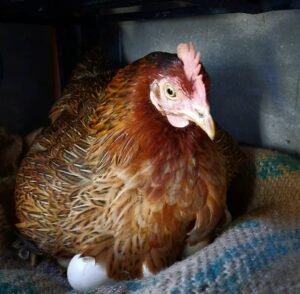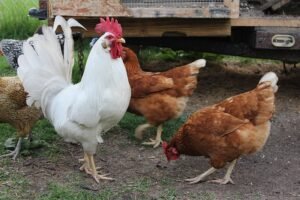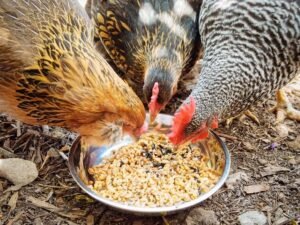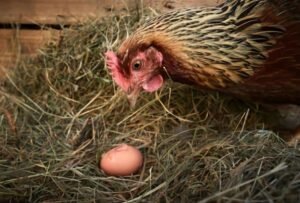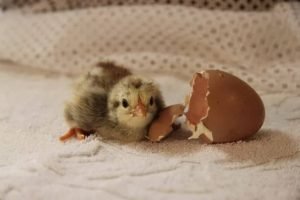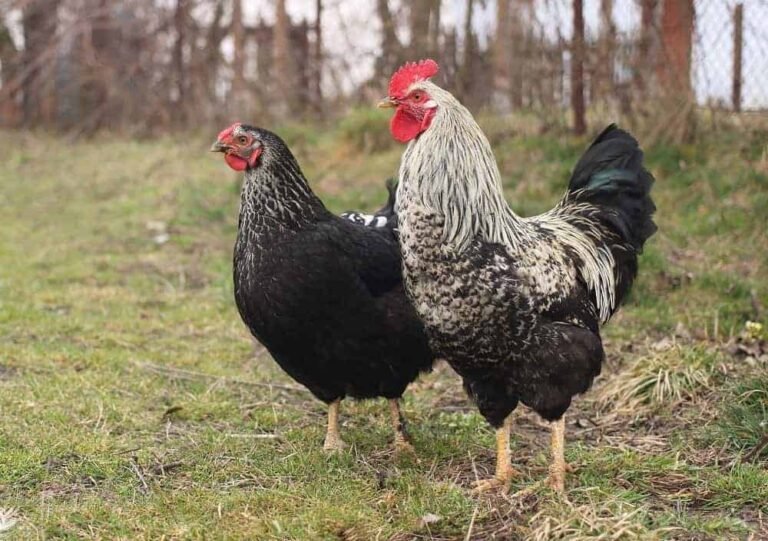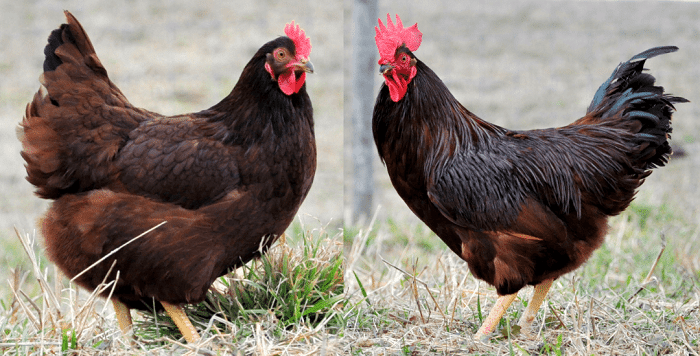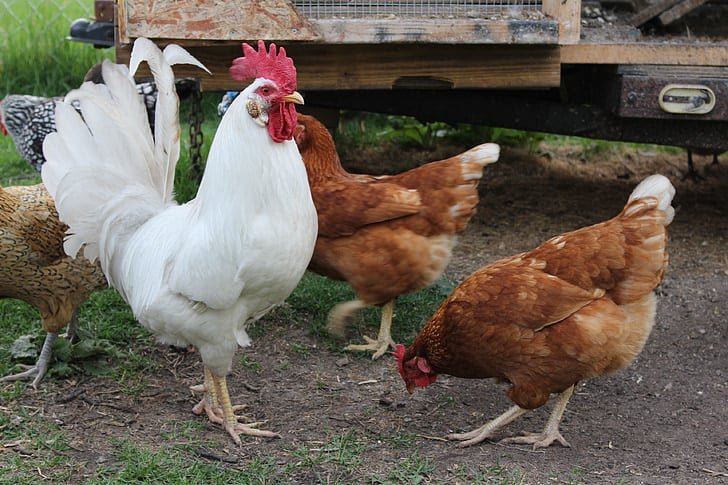How to Get Rid of Bad Chicken Manure Smell

Do you also find the foul smell coming from your chicken poultry worrisome? Or you just have to hold your breath anytime you are around your chicken coop or you go inside. Perhaps, you have been looking for ways to get rid of the stinking smell coming from your coop.
If this is you, then you’re welcome to the page that provides you with how to deal with the chicken manure smell and keep your coop smelling ever fresh.
In this article, you will learn about the causes of the offensive smell in your chicken coop.
Also, you will find various effective ways to get rid of the bad odour from your poultry farm.
You will agree with me that a fresh and clean coop makes the chicken healthier.
Here’s the truth, keeping your chicken coop smelling fresh can be a difficult job to do.
However, you will learn the easy ways of keeping the bad chicken manure smell away from your farm.
Without further ado, let’s get into the details.
What are the causes of bad odour in a chicken coop?
The unpleasant smells in a poultry farm can come from different sources on the farm.
Here’s a list of what causes bad odours in your chicken coop.
1. The chicken droppings or manure:
Chicken poop is the major source of the smell in the poultry as the manure and waste emit a lot of ammonia.
This Ammonia is solely responsible for the offensive smell around the coop when it evaporates into the air around the farm.
It doesn’t readily vapourize under normal conditions except at high temperatures and an increase in moisture content in the manure.
That’s why when manures are kept over time their unpleasant smell tends to fade away.
This is because the cause of the bad smell which is ammonia has vaporized and escaped into the air over time.
Furthermore, exposing your birds to much ammonia smell from their own manure has negative effects on the chickens’ respiratory system.
The smell causes irritation to the mucous membranes in the eyes of the poultry bird.
2. Broken eggs in the chicken nests.
There are some other gases produced in the poultry farm that cause bad smells and air pollution within the environment.
These gases include methane, hydrogen sulphide, carbon dioxide, and even dust particles.
Broken eggs around the coop lead to the production of hydrogen sulphide gas when they are left to rot.
Hydrogen sulphide is a smelly gas that is also toxic to the health of both chickens and men.
Moreover, It is formed in the coop not just from eggs but also from compounds containing sulphur Which break down and decompose in the absence of oxygen.
You can click here to learn how to stop your chickens from breaking and eating their eggs.
Birds exposed to hydrogen sulphide are more likely to be easily affected by pneumonia and respiratory diseases.
Generally, a high level of bad odours in a chicken coop does have negative effects on the environment.
But likewise, increases the likelihood of your chickens getting diseases and reduces the growth performance in poultry production.

3. Type of feed you give your chicken:
The composition of the feed you give to your flock also has effects on the odour from your chicken coop.
High fibre and salt have always been known to promote loose dropping in your birds which has an extra dose of stink.
Thus, even the smell of the poultry droppings is affected by the kind of nutrition you provide for your chickens.
Always keep your chicken feed away from moisture to avoid the growth of fungi and prevent your feed from spoiling.
Similarly, making sure that proper storage plans are made to prevent the unattractive smell emitted by the spoilt feed.
4. Dead chickens in the poultry house:
Another cause of smell in the poultry house may be the result of dead chickens in the pen.
If you have a very large flock, it may be very difficult to know when a chicken dies in the pen.
As a result, a dead chicken in the poultry house can cause the entire pen to smell bad.
Read this article to learn how to prevent high poultry mortality.
How do you get rid of the smell of chicken manure?
Here are some of the things you can do to eliminate the bad odour in your chicken coop.
1. Make use of well-laid and good absorbing bedding materials:
Bedding material is very important in poultry farms that use the deep litter housing system.
They absorb the bird’s waste, especially the liquid part, limiting the production of harmful pathogens and ammonia.
Let’s simply say the wetter the litter, the more your coop smells.
Bedding material helps increase the surface area of the floor on the farm.
Hence, it promotes quick-drying and easy absorption of excess moisture from water spillage and droppings.
There are different types of beddings used on the poultry farm.
Examples of litter materials are straws, hays, wood shavings, sawdust, coarse grain sand and formulated bedding.
All of these materials have their capacities, advantages and disadvantages.
Straws and hays are good beddings but do not absorb the moisture well enough.
Wood shavings are one of the best absorbents you can easily get around you.
It is easy to use and manage, and very good for controlling poultry odours.
They come with their own scent and are very easy and cheap to get.
These very dry materials are a very good choice and how well you maintain them determines how smelly your coop gets.
Although Sawdust causes respiratory problems in smaller poultry birds.
Simply because the dust can easily find its way into the respiratory tract of chickens causing harm to them.

2. Keep water and moisture away from the floor:
It is not just enough to get good absorbing litter but also, always keep water away from it as much as possible.
A wet chicken coop turns into a good breeding ground for bacteria and microorganisms to live.
You can find a good vaccination schedule for your birds here to prevent such microorganism diseases.
Water also aids the release of smelly gases in the air within the coop.
As such, having a dry litter will stop ammonia gas from forming in the chicken manure.
Moisture and water on the floor of the poultry farm can be a result of water spillage or leakage.
Moving your water dispensers and filling them could result in water spillage and other times you could find them broken and leaking.
These problems can be handled by getting a good drinker and water dispensers that allow little or no wastage of water.
Also, ensure that they are well placed within the coop to avoid your chicken playing with them and splashing water around.
Good examples are the nipple valve system which is cheap and can easily be made.
Other sources where water and moisture can easily enter the coop are the windows, roof and vents.
Furthermore, rainwater can find its way into the poultry house through the openings around and cause leakage.
In such a case, this sort of intrusion needs to be arrested immediately to stop the leakage and keep water away from the litter.
3. Properly ventilating your coop:
Right from the start, your poultry farmhouse or chicken coop needs to be well designed to be properly ventilated.
An effective and proper ventilation system needs to be considered when citing and making your poultry house.
This will help keep your coop well aerated and reduce the manure smell from the chicken.
In fact, a good flow and circulation of air always keep the coop dry and the urea and droppings smell to a minimum.
There is also equipment that can be installed around the coop to help draw fresh air into it.
Fans are such good ideas for stuffy coops with stagnant airflow.
Box fans can be installed at appropriate locations and they will help circulate the air within the coop.
This cheap fan keeps the coop from getting hot, blows away the bad odour to a minimum and will even keep flies away.
4. Occasionally change your bedding material:
A well-maintained litter still needs to be changed once in a while to maintain a good hygiene practices.
The quality of the beddings and the kind of chickens you keep determines how often your litter needs changing.
Other things like humidity and weather also affect how often your beddings need to be changed.
Your litters for layers should be well prepared to last them for about 14-15weeks.
While broilers chickens must have their beddings changed every 4 weeks at least.
This practice does not just help reduce the manure smell within the coop but also reduces the number of microbes within the coop.
Very dirty poultry bedding is a good breeding site for various microorganisms.
Hence, it is important and very healthy for your poultry birds to occasionally change their litter.
More importantly, even before the general changing of your beddings always clean out the part that’s soiled with water.
Perhaps, you have got broken eggs in your coop, then always be sure to clean them up to prevent rot and the foul smell that comes after.
5. Use biochar in the poultry house:
Biochar is a type of charcoal that has a high carbon content.
It is a very powerful absorbent with high porosity and a stable chemical structure that is resistant to decay.
When you mix biochar with the chicken litter, it absorbs moisture in the chicken poop and urine.
As a result, biochar helps to reduce toxic ammonia pollution as well as regulates the moisture level of the litter.

6. By adding air fresheners and odour eliminator to your beddings and coop:
Air fresheners, coop refreshers, herbs with wonderful smells and fly repellants are all good additives that are useful in masking poultry odours.
All of these bad odour eliminators also provide your poultry farm and its environment with a sweet scent.
They can be used before or after laying your litter, when the birds are already in the poultry house or when the smell is just beginning to show up.
It all depends on the type of smell removal and air freshener you have decided to use or apply.
There are also some aromatic plants and herbs which your chickens will very much appreciate.
Such plants have a great smell and can be placed all over the poultry house to keep the coop smelling fresh.
They help keep pests, flies and insects too away from the chicken coop.
And are even edible and sometimes your chickens find them a good forage material.
7. The use of Lime or vinegar to remove the manure smell:
Chickens are not particular about where they poop and eventually it accumulates and gives you a strong odour.
One of the effective ways of removing the unpleasant smell in your coop is the use of agricultural lime.
Basically, they neutralise the pH and will remove the unpleasant smell around.
Make sure you clean your coop very well and wash away the dirt and faeces as much as you can.
You can also disinfect everywhere like your walls, floors, nesting boxes and various other equipment with little bleach.
Afterwards, spread a light coating of lime across the floor before adding your bedding materials.
Putting lime in place will help absorb moisture and smell away from the litter.
You can subsequently add a bit of lime when you notice the odour returning after a while.
Likewise, vinegar is Also used by spraying around the coop to remove the manure smell.
8. Prevent chickens from breaking their eggs in the nesting boxes:
Just as stressed earlier, the breaking of eggs in the nesting boxes should be discouraged at all costs.
This habit can easily spread among your chickens.
Hence, it is best to find ways to curb such as it can only lead to loss of profit for farmers.
When eggs break and begin to rot, they produce unpleasant smells which can be irritating.
Also, there are specific space requirements for your birds that need to be followed to avoid overcrowding.
Conclusion
The manure smell that lingers around the poultry house is unpleasant and needs to be removed.
Such smells are caused by various reasons the major factor being ammonia from chicken manure and waste.
You can always keep your poultry house smelling nice by keeping it moisture free and well ventilated with the use of an odour eliminator.
The tips above will help you to keep your poultry farm free from chicken manure smell.
Henceforth, your chicken coop will only smell fresh.
References
- 12 Best Chicken breeds for Eggs – chicken breeds for eggs
- When Do Chickens Start Laying Eggs Regularly?
- How Many Eggs Does A Chicken Lay In A Week?
- Fermenting chicken feed – The definitive guide
- 10 Sure Ways To Stop Chickens from Eating Their Eggs [+Bonus]
- 6 Best Chicken Egg Incubators for Chicken Eggs and Other Birds
